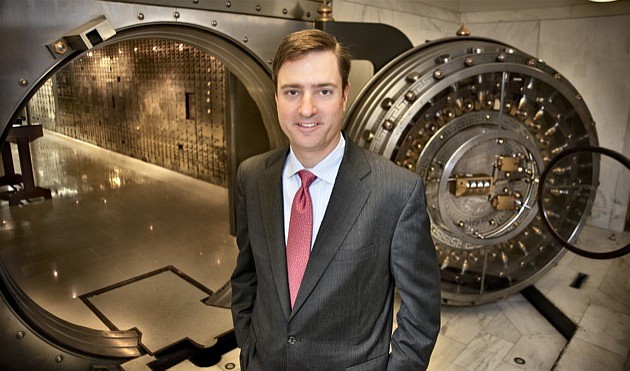- December 22, 2024
-
-
Loading

Loading

In 2010, Superior Bank posted more than $232 million in net losses. On April 15, regulators closed the bank's Birmingham-based holding company.
Through the first nine months of 2011, those losses were replaced by $6.8 million in profits. And according to Hank Holmes, that number was depressed somewhat by costs associated with the bank's recent merging activity.
In other words: look out, 2012?
Holmes leads the Florida operations of the former Superior Bank -- now called Cadence following a November merger. Cadence Bank now claims $950 million in deposits throughout Florida, and $900 million in loans, managed by a network of 32 offices.
Holmes says the goal in 2012 will be to expand Cadence's book of business, including new branch locations in markets like Orlando and Jacksonville. There are plans to add staff to certain business segments as well, such as business banking and commercial lending.
The bank's profitable start to 2011 makes it seem as though that growth process has already begun. But Holmes says its $900 million loan portfolio has actually been downsized in recent months.
Instead, Holmes says the bank's focus for 2011 was stabilization. The approach was multifaceted: complete the newly announced merger; improve relationships with regulators (the FDIC estimated Superior to have cost taxpayers $330 million; Holmes chose not to comment on the estimate); restore confidence in the bank's employees; and clean up the balance sheet.
Step one is done; Holmes says future financial statements will no longer show the effects of merger costs, and all former Superior branches are now clearly rebranded as part of the Cadence network. Relations with the FDIC are much better as well, he says.
As for restoring the employee base, Holmes says identifying new leaders -- such as Bruce Page, a key member of the bank's Sarasota-Bradenton team -- has helped bring back focus to a staff likely shaken by Superior's past failure. “The employees are committed,” Holmes now says of his bank's current Florida team.
Despite all these positive steps, however, growth in 2012 is not a given. For one, the presence of several other mid-sized, commercially focused banks like USAmeriBank and Hancock makes Florida a competitive hotbed. “It's crowded,” Holmes says of the local market.
But the Memphis native insists that a high level of service can win business. Merging with Cadence extended mobile banking tools to former Superior customers, for example.
Capitalization is another important factor. Cadence lists more than $170 million in tier one capital on its balance sheet (which includes operations in other states), up from roughly $87 million a year prior. Total capital exceeds $246 million, up from $134 million in 2010.
Support from profitable operations elsewhere in the country, such as Texas, will help Cadence to expand in Florida, too. Indeed, despite the sizable effort at developing business here, the Sunshine State's current economic environment lags; Holmes will only go as far as saying that “some signs” point to future improvement for this market.
But while Florida continues to struggle with debt, deficits and defaults, Holmes says Cadence has resolved many of its issues, including the removal of significant amounts of real estate lending from the balance sheet. The bank's loss provision has decreased significantly as a result -- from more than $38 million in September 2010 to just more than $1 million a year later.
It goes back to Cadence's stated goal of achieving stabilization in 2011. Holmes thinks that goal has been achieved. “We know we've made a turn,” he says.